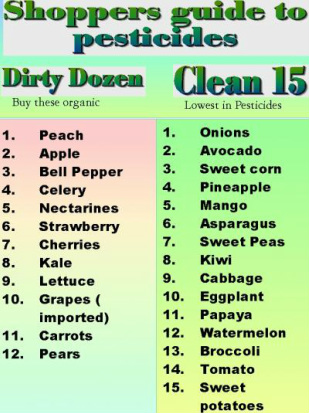Life is too short to worry about it
cancer and our kids9/30/2013 My Wife and I were talking the other day about the rapid increase in child cancer cases. When we were kids it was almost unheard of. In the same week a news report came out about one of my favourite animals. Beluga whales are dying at a record rate. Beluga whales in the St. Lawrence sea way are dying from cancer. Beluga whales live entirely in the Arctic and sub-Arctic. There are approximately 70,000 worldwide and about 650 of these live in a small region of the St Lawrence Estuary in Quebec. Between 1983 and 1999, 263 dead whales were reported. Daniel Martineau of the University of Montreal and his team were able to conduct 100 autopsies. He found that cancer, particularly cancer of the digestive tract, was the cause of death of 18 per cent of juvenile belugas and 27 per cent of the adults.
The Chemical found in the amazing mammals, polycyclic aromatic hydrocarbons (PAHs), came from the aluminum plant dumping manufacturing waste water into the river. To their credit they have reduced the toxic outflow by 80%. The scary fact about this story is just that. Most of the great lakes have been used as a dumping ground for toxic waste since the beginning of the industrial revolution. Millions of people from Montreal, Toronto, Detroit and Buffalo drink water from the St.Lawrence and great lakes. The water is treated with chemicals to remove organic bacteria but does nothing to remove the fine molecules of toxic to chemicals. Cancer is a world wide epidemic, one cause continues to point to our use of chemicals and the way we dispose of them. PAH's can be found in everything from packaging, cosmetics, car exhaust, asphalt and many sources of drinking water. One more reason to love Victoria and the Sooke water basin.
0 Comments
Naturals sunscreens9/30/2013 Sun screen the good and the bad.There are a lot of studies being done about sunscreen these days. These studies are being done by the manufactures, Chemical companies and consumer groups. The most interesting thing about the studies is that they contradict each other. All of the studies have some sense of validity the. Risk comes in putting to much faith in the products themselves and not enough in common sense. Sun Blocks that don't come off in the water penetrate the skin deeply. Sunblocks that wash off easily need to be re applied more frequently but do not penetrate the skin. Chemicals that penetrate our skin reach are blood stream an can have a adverse effect on our skin through cumulative use. Recent medical research is indicating that certain sunscreen ingredients are in fact having a detrimental effect through cumulative use. I was also surprised to find out that the UVA rays that cause sunburn are not the same as the UVB rays that are responsible for causing many of the skin cancers. A lot of commercial sunblocks only protect against the UVA rays. When applied to breast cancer cells in vitro (test tubes) the following chemicals increased cancer cell proliferation/growth:
He also notes that Australia has the highest rate of skin cancer in the world per head of population, and that Queensland has the highest rate in Australia. All of our sunscreens are free from ingredients like: Octyl Methoxycinnamate, octinate, Octyl dimethyl PABA,Benzophenone, Oxybenzone, Phenethyl Alcohol, Parsol-17,4-Methylbenzylidene Camphor, Phenoxyethanol, Diazolidinylurea,Hydroxybenzoates, Phenylbenzimidazole Sulfonic, Methyl Paraben, PropylParaben, sodium laurel sulphate. We recommend that you investigate the above ingredients in order to assist you in making a conscientious, informed choice. The research data is readily available on the web. The Sun is not an enemy, it is healthy in moderation and with the proper protection the whole family can enjoy the summer. Slap on natural, non-toxic sunscreen, wear a hat, and monitor exposure and enjoy the sun Suwndawg products are a good bet for blocking out both typs of sun rays . Click on the picture below for more info about Sundawg sun care products. Why buy organic9/20/2013  Why go organic? When I first started down the organic road on 1996 I was reluctant to spend the extra money on produce. My wife and I started getting it delivered on a weekly basis. I didn't notice any grand changes in my energy levels so I was skeptical. Until I went to a peach farm in the Okanagan. I was driving by one with my dad and noticed a strange chemical odour. I stopped to get out to see where the smell was coming from. Once I had seen how much pesticides were used in one application I decided to do a bit of research. It seems that their are about 45 different pesticides that can be used on peaches. Peaches top the list of 12 foods that contain the most pesticides. I now only buy Organic. It would have been nice if someone would have told me what I was buying with my peaches Below is a list better known as the dirty dozen. 12 of the most contaminated produce. Washing can help but buying organic is better: How does this relate to skin care? It's simple. According to the European medical journal the average women will absorb 4.6 lbs of chemicals through make up, lotions, lipstick and bath products a year. Multiply that number by your age and that's a lot of chemicals in our blood stream that gets stored in our body fat. Since Free Spirit uses botanical ingredients it is important to keep our products clean from pesticides which is why we grow more and more of our own herbs and flowers that we use in our products or we buy organic. Take care of the earth9/5/2013 The earth is made up of a host of chemicals. These chemicals in their natural state hold a symbiotic balance with nature. It seems the industrious nature of the humans is consistently changing that balance. Lets take oil as an example, in its natural state it is found mostly underground and has taken millions of years to form. We have taken that natural substance and created thousand of new ones and spread them all over the surface of the world. The problem is that all of these new additives, extracts and chemicals do us more harm than good. On one hand they have made our lives much more convenient and on the other hand they are clogging our water ways, killing our oceans, fouling up the air and causing a wide list of damage to ourselves, including cancer. Of course economics plays a huge roll in the direction that governments and businesses take. So why not lead with our spending habits Check out our web site @ HERE What is Diethal sulphate9/4/2013 People have asked why Wendy and Joseph have devoted some time to creating pure botanical products. Part of the answer can be found by listening to the news or reading the paper as more and more chemicals that have been called safe for the past 40 years have been discovered to cause cancer. The list of these chemicals are being revealed to the people in power and the Canadian Government has created a list of chemicals to ban. Diethal sulphate can be found in shampoos, nail polish remover, fabric softeners, and of course fragrances. There is a good chance that when you read fragrance on any product, it contains diethal sulfate. Originally it was created as a chemical warfare agent. Below is a paragraph from the Environment Canada Website page. Feel free to research this and other chemical information yourself.
A notice summarizing the scientific considerations of the draft screening assessment report was published for diethyl sulfate by Environment Canada and Health Canada in the Canada Gazette, Part I, on January 24, 2009, under subsection 77(1) of CEPA 1999. The draft screening assessment report proposes that, based on the carcinogenic potential of diethyl sulfate for which there may be a probability of harm at any level of exposure, it is concluded that diethyl sulfate is a substance that is entering the environment in a quantity or concentration or under conditions that constitute or may constitute a danger in Canada to human life or health. Once again it is a red flag for all of us to use products that are natural and eat food that is organic. Try our Liquid lather for kids and adults Author Joseph Gonyeau Categories
All
Archives
January 2022
|



 RSS Feed
RSS Feed

